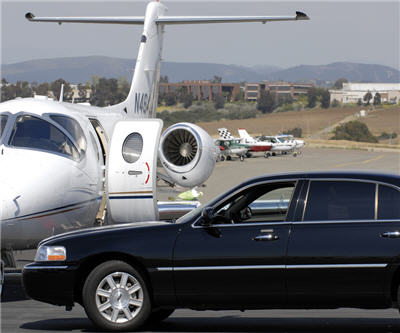Botswana braces for De Beers relocation, diamond buying jet set

The Sunday Standard reports the CEO of De Beers Botswana, Neo Moroka, is urging the Gaborone business sector to seize opportunities provided by the relocation of the mining giant’s sales and marketing arm’s headquarters to the Botswana capital.
De Beers, 15% owned by the government of Botswana with an option to increase the stake to 25%, is moving its subsidiary, Diamond Trading Company or DTC, from London, UK.
Roughly 80 families will move to Gaborone and will need “world class, high-end executive accommodation,” says Moroka.
The relocation also means De Beers qualified rough diamond buyers or ‘sightholders’ will have to fly into the Southern Africa city every five weeks:
According to Moroka, the Migration Steering Committee has identified those aspects that will need the input of the government given that the people who will be flying in and out of Botswana are international business people with cultures and religions that could, in some instances, be totally different from Botswana’s.
“We have found that there will be need for such facilities like prayer rooms. We have to cater for religious as well as dietary requirements of these people. Without answering for them, I can confidently say government has recognized these needs and there is a consensus move towards providing what is required. Ultimately the general state of preparedness depends on cooperation between De Beers and the Government of Botswana,” said Moroka.
Antwerp Facets reports the relocation is just part of the story:
The rabbit up its sleeve in the sales agreement is that it secured the right to immediately start selling 10 percent of production independently. In the next five years, that proportion is due to rise to 15 percent. Given that its annual production is around 24 million carats and rising, Botswana will clearly be able to leverage the power that the independent sales element of close to three million carats provides to encourage diamond companies to set up operations in the country. Initial estimates suggest that the sales agreement will lead to around $6 billion flowing though the country’s banking system, compared to the $2 billion or so that the country earns currently from the sale of rough goods.
Botswana, a nation of fewer than 2 million people, is the second largest producer of diamonds in the world. The top five diamond producing countries — Russia, Botswana, Democratic Republic of Congo, South Africa and Canada — account for more than 75% of total production by weight.
About 175,000 tons of gold have been mined in all of human history. The estimate for total rough diamond production is around 500 tons, of which just 20% to 30% are gem-quality stones.
Rough-diamond prices rose 24% in 2011 building on strong gains during the two preceding years.
{{ commodity.name }}
{{ post.title }}
{{ post.date }}




Comments
Boitshwarelo Motlogelwa
FLY BOTSWANA!
WE ARE INDEED A PROUD NATION!!!!!!!!
WE ARE VERY VERY PROUD OF OUR COUNTRY AND MAY THE GOD LORD BLESS THE LEADERS OF THIS NATION. WITH GOD BOTSWANA SHALL MOVE THE WORLD.
NATIONS ARE WELCOME HERE!
FROM BOITSHWARELO MOTLOGELWA
CONTACT : 00267 71325791